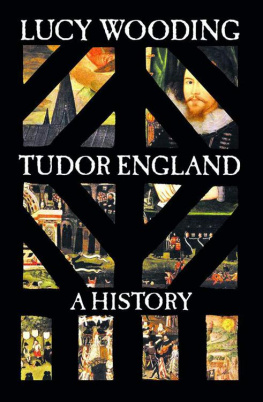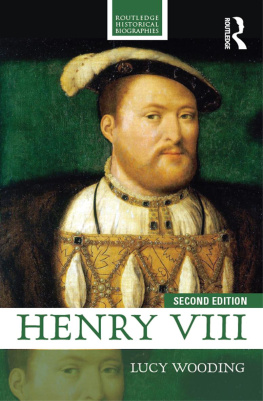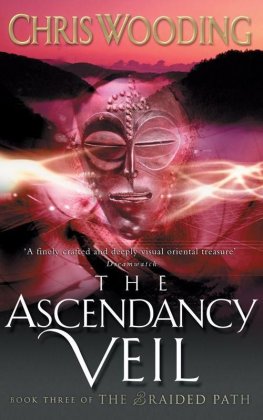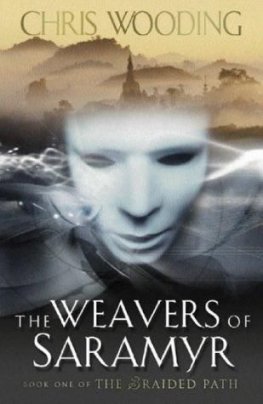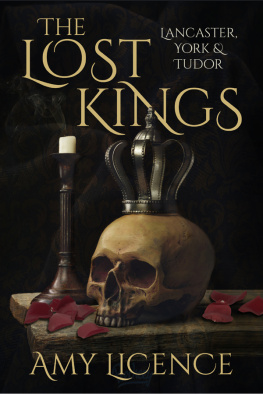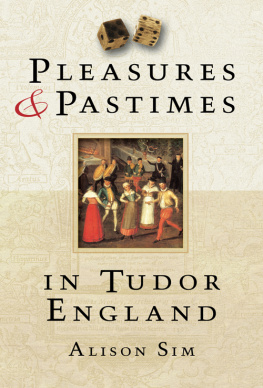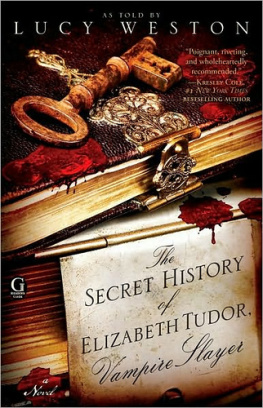Lucy Wooding - Tudor England: A History
Here you can read online Lucy Wooding - Tudor England: A History full text of the book (entire story) in english for free. Download pdf and epub, get meaning, cover and reviews about this ebook. year: 2023, publisher: Yale University Press, genre: Non-fiction. Description of the work, (preface) as well as reviews are available. Best literature library LitArk.com created for fans of good reading and offers a wide selection of genres:
Romance novel
Science fiction
Adventure
Detective
Science
History
Home and family
Prose
Art
Politics
Computer
Non-fiction
Religion
Business
Children
Humor
Choose a favorite category and find really read worthwhile books. Enjoy immersion in the world of imagination, feel the emotions of the characters or learn something new for yourself, make an fascinating discovery.
- Book:Tudor England: A History
- Author:
- Publisher:Yale University Press
- Genre:
- Year:2023
- Rating:4 / 5
- Favourites:Add to favourites
- Your mark:
- 80
- 1
- 2
- 3
- 4
- 5
Tudor England: A History: summary, description and annotation
We offer to read an annotation, description, summary or preface (depends on what the author of the book "Tudor England: A History" wrote himself). If you haven't found the necessary information about the book — write in the comments, we will try to find it.
Tudor England: A History — read online for free the complete book (whole text) full work
Below is the text of the book, divided by pages. System saving the place of the last page read, allows you to conveniently read the book "Tudor England: A History" online for free, without having to search again every time where you left off. Put a bookmark, and you can go to the page where you finished reading at any time.
Font size:
Interval:
Bookmark:
TUDOR ENGLAND

Copyright 2022 Lucy Wooding
All rights reserved. This book may not be reproduced in whole or in part, in any form (beyond that copying permitted by Sections 107 and 108 of the U.S. Copyright Law and except by reviewers for the public press) without written permission from the publishers.
All reasonable efforts have been made to provide accurate sources for all images that appear in this book. Any discrepancies or omissions will be rectified in future editions.
For information about this and other Yale University Press publications, please contact:
U.S. Office:
Europe Office:
Set in Minion Pro by IDSUK (DataConnection) Ltd
Printed in Great Britain by TJ Books, Padstow, Cornwall
Library of Congress Control Number: 2022942422
e-ISBN 978-0-300-26914-7
A catalogue record for this book is available from the British Library.
10 9 8 7 6 5 4 3 2 1
CONTENTS
ILLUSTRATIONS
Plates
Integrated images
ACKNOWLEDGEMENTS
It is a joyful task to be able to thank the many people who have helped bring Tudor England into existence. To Heather McCallum at Yale, who first asked me to write this book and who has been an extraordinarily astute, patient and supportive editor through the long years it has taken me to finish it, I owe all gratitude. I am also indebted to Katie Urquhart and the team at Yale for all their hard work and professionalism, and to the anonymous readers for their very helpful suggestions.
Since October 2016, I have been lucky enough to work at Lincoln College Oxford, and there could not have been a more congenial atmosphere in which to finish a book. Lincoln is a college like no other: the warmth of its community and the standards of academic excellence upheld by fellows and students alike have supplied both encouragement and motivation. In particular, I have been fortunate enough to work alongside Perry Gauci, whose enduring patience and abiding good humour are legendary many generations of Lincoln alumni will know what I am talking about. To him, and to our colleagues Sam Brewitt-Taylor and Joshua Bennett, I owe a great debt of gratitude for their support, forbearance and unfailing cheerfulness.
The wider population of early modern scholars at Oxford comprises a formidable array of talent, and it is an exceptional privilege to work among them. In particular, I am profoundly grateful to Ian Archer, Alexandra Gajda and Steven Gunn, all of whom, out of the kindness of their hearts, found time to read the book in Steves case, with exceptional nobility, whilst immured with Covid. They have done much to improve it. Aude de Mzerac-Zanetti supplied both scholarly advice and affectionate encouragement. I also owe a great deal to other cherished colleagues, especially Vincent Gillespie: teaching alongside Vincent has truly been one of the most inspiring experiences of my life. For both wisdom and good fellowship, I would like to thank George Bernard, Matthew Kempshall, Melanie Marshall, Peter Marshall, David Parrott, Susan Royal, Alec Ryrie, Adam Sutcliffe and Alexandra Walsham.
I have been privileged to teach on the subject of Tudor England for nearly three decades now. I would like to record my gratitude to the successive generations of students with whom I have discussed all the themes in this book over those years at Queens University Belfast, Kings College London and, most recently, the University of Oxford. Students teach their tutors far more than they ever realize, and impart the kind of energy and enthusiasm that keep every university alive. In particular, the early modern postgraduate community here at Oxford is comprised of especially gifted and lovely people, to whom we all owe a special debt for keeping us going through the long and difficult months of lockdown. Above all, I thank my beloved Lincolnites for being such a delight and inspiration. I hope some of the generations to come will find this book useful.
That this book was finished at all is a testament to friendship. Tony Claydon has been saving me from various forms of crisis at regular intervals ever since my second year as an undergraduate, and again stepped in to rescue me from despair in the dark days of 2021. To him and his husband, Jeremy Gregory, I owe all love and gratitude. Ross Moncrieff agreed, in the long and painful summer of 2020, to help out with a little editorial work, but rapidly assumed instead a role somewhere between literary advisor and life coach, and I owe him more than I can say. Joseph Hopper was both helpful and calming. Ebrahim Hanifehpour, with great generosity, read some of the manuscript to give me the student perspective, and I thank him, too, for his insightful comments. To the many friends who cheered me on, again thanks especially to Kate and Matt, who read pieces of the book and said heartening things, and to a host of other friends without whom I could not have coped. I also have to thank from the bottom of my heart Aleksandra Edwards, who has helped to look after my family for ten years now, and on whose resourcefulness, cheerfulness and affection we all depend. Even closer to home, my mothers creative energy and intellectual curiosity have been lighting up the world for over nine decades, and never cease to inspire and entertain. My dear husband would have found it all a lot easier if this had been a book about Russian history; but he has been my faithful companion through this, as through many other trials. Finally, I have to thank our lovely children, who have put up so philosophically with their often stressed, frequently inattentive mother; who have tried hard not to roll their eyes when I talk about the Tudors; and who (along with the dog Byelka, who deserves a mention) have made life worth living throughout all the time this has taken. Misha, Vanya, Roma, I promise you dont have to read it, but this book is for you, with all my love.
INTRODUCTION
Rightly therefore is it sayd of Cicero, speaking of antiquitie, that historie is the witnesse of truth, the glasse of times: and not to understand what was done before we were borne, is to live alwayes as children.There was no such thing as Tudor England until long after the last Tudor was dead.commercialized beyond all recognition. For all that this popular enthusiasm can be inspiring at times, it can also be deeply misleading. The Tudors deserve more profound and careful scrutiny.
Tudor England in its own time was nothing like it looks on a screen. The truth is at once more complicated, more intractable and much more interesting. There were many different political, social and religious changes taking place in the years between 1485 and 1603. At the same time, international alliances were shifting; wars were fought on land and at sea; famines and epidemics ravaged communities; schools and colleges were founded; books were written and printed as never before; villages, towns and cities battled with social problems and attempted to promote social harmony; men, women and children worked, suffered, celebrated and died. This book tells some stories which may seem familiar of kings and queens, battles and rebellions, palace intrigue and political crisis. It interweaves such stories with less familiar accounts of what it was like to walk through the Tudor landscape; to live the life of a peasant woman or an urban artisan; to exercise authority as a noblewoman or as a lawyer; to follow the rhythm of the ritual year in one of the thousands of rural parishes; and to struggle to maintain communal solidarity in the face of unprecedented social challenges. Escaping from the stranglehold of the usual Tudor narratives, this book aims to give a broader picture, looking at the whole of Tudor England, not just the pieces we already recognize.
Next pageFont size:
Interval:
Bookmark:
Similar books «Tudor England: A History»
Look at similar books to Tudor England: A History. We have selected literature similar in name and meaning in the hope of providing readers with more options to find new, interesting, not yet read works.
Discussion, reviews of the book Tudor England: A History and just readers' own opinions. Leave your comments, write what you think about the work, its meaning or the main characters. Specify what exactly you liked and what you didn't like, and why you think so.

